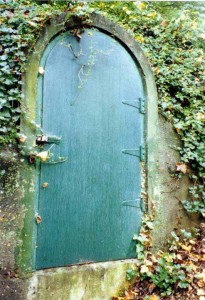May 25, 2012 — I got up the other morning and greeted myself in the bathroom mirror. The t-shirt I had been sleeping in said “RATS.” Then I realized the shirt really said STAR, the name of the groomers who used to groom Jetta, our teacup poodle. So, my day got better.
—Until dinnertime when I reached into the refrigerator and pulled out the bottle of René Barbier Mediterranean White Catalunya to have with my flounder. The bottle must have a leak in it or something, for there remained but a sip. I hadn’t touched that wine since my daughter Kellie was here and my friend Jackie came over. I don’t know what happened…. That was the day we assembled the bookcase and then indulged in piles of crackers, gourmet cheeses, protracted conversation, Kellie’s iPhone Pole Barbie photos and a little wine. (See Chapter LXIX: Pole Barbies.)
I emailed my friend who turned me onto this wine about my situation.
“I think the bottles are defective,” she wrote back. “I have the same problem.”
My friend and her husband own a Chevy S-10 pickup truck, and they have graciously offered to let me use it whenever I need it.
I needed some clothes. My guess is that the shops lining Melrose Avenue in West L. A. are located beyond the fringe of where my friends would have me drive their truck. So I drove to the local mall. That in itself was culture shock: Having been confined to home most of every day caregiving for Emma and without a car, I hadn’t been to the mall in nearly two years.
As I declined brochures and fliers from hands outstretched like toll gates from every kiosk along the way, and stepped from the mall concourse into the perfumed chamber of Victoria’s Secret, a salesgirl popped up in front of me as if magically underwired: “What can I help you find today?” I told her I was looking for a bra. “What size are we wearing?” she asked ebulliently.
“We!” I exclaimed. “I hope it’s not we, but just me!” I was looking for something more substantial than would fit a Pole Barbie body, something, shall we say, for a person who eats. Anyway, they didn’t have anything in my wallet size. I would have found it uplifting, had they. (Couldn’t resist that one.)
Then I tried on some blouses in a department store dressing room. When will department stores stop using garish overhead lighting and funhouse mirrors in their dressing rooms? Next they’ll thoughtfully provide scales. I scanned the upper walls and corners, truly hoping no camera lurked in there. You’d think they’d create an atmosphere to make you actually want to purchase that thing you’re trying on – you know, like candlelight and wine.
On the way home, I stopped at the liquor store to pick up some Catalunya. My friend orders it by the case from this store. The owner was there and he knows me.
“Do you have any Catalunya?” I asked.
“Wait a minute,” he said, and he disappeared into the back room to emerge carrying a bottle of Catalunya. He handed it to me.
“Is that from my friend’s stash?” I asked.
“Yes,” he told me.
“Not only has she graciously lent me her truck,” I told him, “but now I’m using it to dip into her wine stash.”
We laughed. He agreed with my friend and me that the bottles probably do leak. I paid for my wine and left.
I drove home, carried my acquisitions into the house and put them away, stashing the Catalunya in the fridge. Then I drove over to my friend’s place and dropped off the little truck. On the way out I encountered her walking along the sidewalk.
“Thank you so much for lending me your truck,” I said.
“It’s yours to use anytime you need it,” she said.
“Maybe you’ll change your mind when you find out I’ve dipped into your wine stash,” I told her.
“I kno-o-o-w,” she said.
“Oh, you were there right after I was?”
“Yes,” she said.
I can only reflect.
—Samantha Mozart









